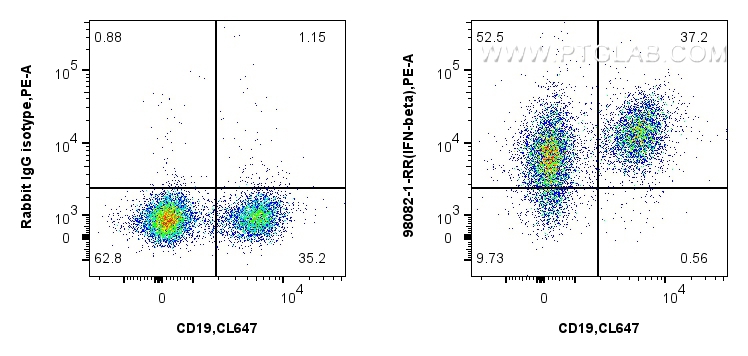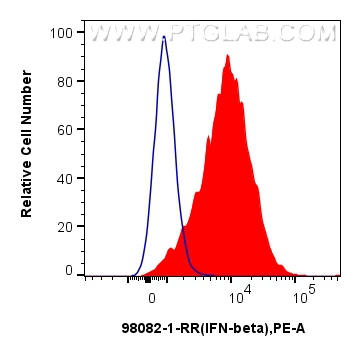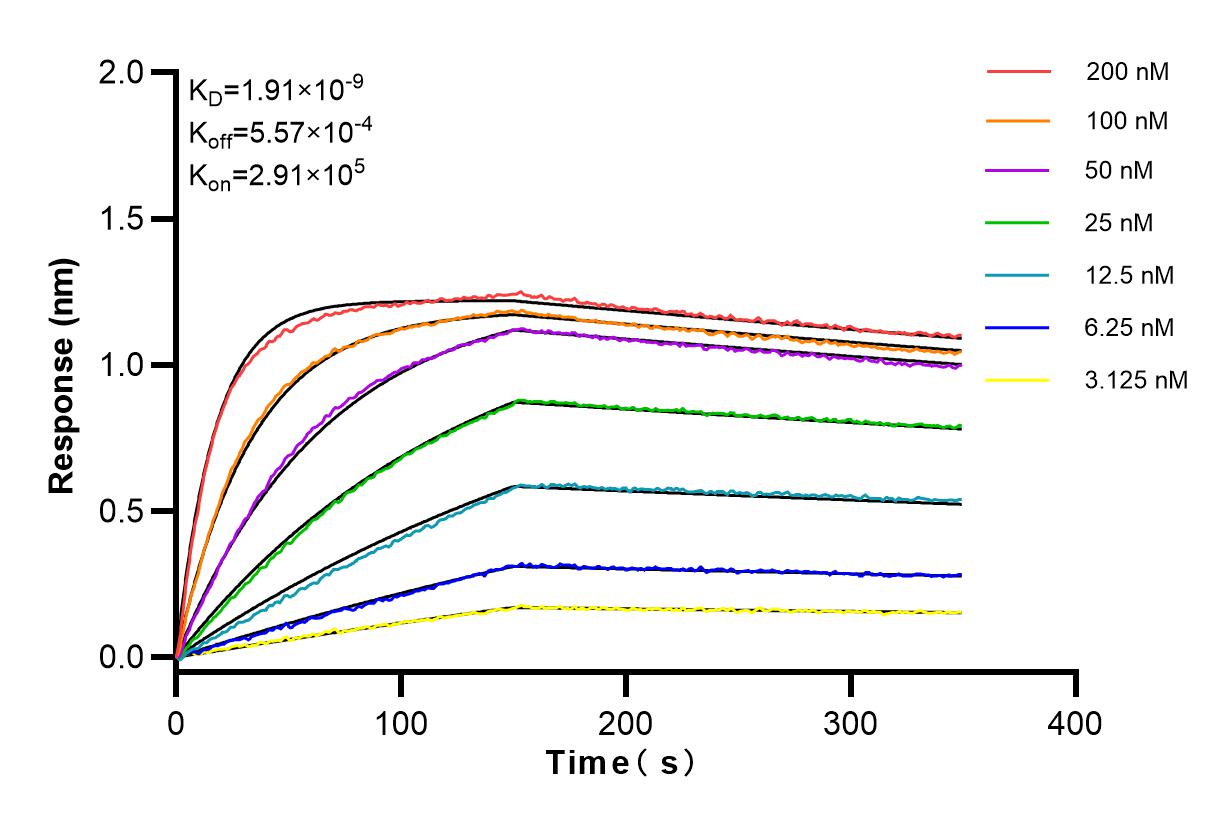验证数据展示
经过测试的应用
| Positive FC (Intra) detected in | mouse splenocytes |
推荐稀释比
| 应用 | 推荐稀释比 |
|---|---|
| Flow Cytometry (FC) (INTRA) | FC (INTRA) : 0.25 ug per 10^6 cells in 100 μl suspension |
| This reagent has been tested for flow cytometric analysis. It is recommended that this reagent should be titrated in each testing system to obtain optimal results. | |
| Sample-dependent, Check data in validation data gallery. | |
产品信息
98082-1-RR targets IFN-beta in FC (Intra) applications and shows reactivity with mouse samples.
| 经测试应用 | FC (Intra) Application Description |
| 经测试反应性 | mouse |
| 免疫原 |
CatNo: Eg0660 Product name: Recombinant Mouse IFN-beta protein (His Tag) Source: mammalian cells-derived, pHZ-KIsec-C-6*HIS Tag: C-6*HIS Domain: 22-182 aa of NM_010510.1 Sequence: INYKQLQLQERTNIRKCQELLEQLNGKINLTYRADFKIPMEMTEKMQKSYTAFAIQEMLQNVFLVFRNNFSSTGWNETIVVRLLDELHQQTVFLKTVLEEKQEERLTWEMSSTALHLKSYYWRVQRYLKLMKYNSYAWMVVRAEIFRNFLIIRRLTRNFQN 种属同源性预测 |
| 宿主/亚型 | Rabbit / IgG |
| 抗体类别 | Recombinant |
| 产品类型 | Antibody |
| 全称 | interferon beta 1, fibroblast |
| 别名 | Ifnb1, 240230B6, Ifb, IFN beta, IFNB |
| 计算分子量 | 22KD |
| GenBank蛋白编号 | NM_010510.1 |
| 基因名称 | Ifnb1 |
| Gene ID (NCBI) | 15977 |
| RRID | AB_3672229 |
| 偶联类型 | Unconjugated |
| 形式 | Liquid |
| 纯化方式 | Protein A purfication |
| UNIPROT ID | P01575 |
| 储存缓冲液 | PBS with 0.09% sodium azide, pH 7.3. |
| 储存条件 | Store at 2 - 8°C. Stable for one year after shipment. |
背景介绍
Interferon-beta (IFN-β) is a type I interferon, which is a group of signaling proteins made and released by host cells in response to the presence of several viruses, including double-stranded RNA produced by many viruses. IFN-β is a single protein species and is molecularly related to IFN-α subtypes, although it is antigenically distinct from them. It is mainly produced by fibroblasts and plays a crucial role in the innate immune response against viruses. IFN-β can inhibit viral replication by interfering with the virus's RNA or DNA, thus suppressing viral growth. It also enhances the cytotoxic activity of natural killer (NK) cells and promotes the expression of major histocompatibility complex (MHC) class I molecules.
实验方案
| Product Specific Protocols | |
|---|---|
| FC protocol for IFN-beta antibody 98082-1-RR | Download protocol |
| Standard Protocols | |
|---|---|
| Click here to view our Standard Protocols |




